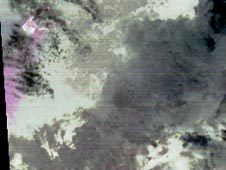In the hives that are weakened, no dead bees are actually found in the hive and not all the bees have died. A tiny cluster of living bees survives, but they are lethargic.
For example, Hill said the bees would not sting you if you stuck your hand in the hive.
They could recover if there is no big freeze this year. If a freeze does occur though, there are not enough bees for the hive to stay warm and the rest will die.

|
| ©Unknown |
| Property across the road from Franklin High School will be the site of Cross the Road Ministries Youth Center |






